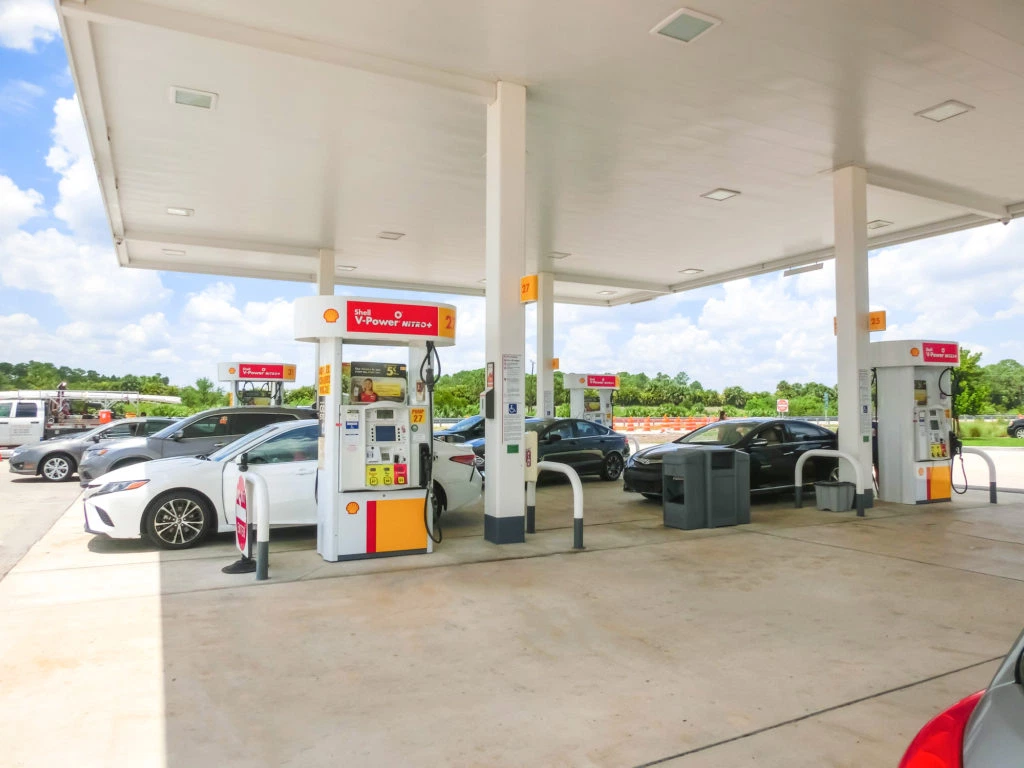Fueling stations must prioritize CMMC compliance to enhance cybersecurity defenses effectively. Secure access protocols and data protection are essential for safeguarding sensitive information. Cybersecurity measures play a vital role in fortifying defenses against potential threats and enhancing overall security posture. Understanding and implementing cybersecurity protocols, along with aligning controls to processes, are crucial initial steps. Regular risk assessments and continuous monitoring ensure the efficacy of security measures. Educating staff on cybersecurity best practices significantly reduces the vulnerability to cyber attacks. Proactively identifying and addressing vulnerabilities through robust cybersecurity measures is imperative. Leveraging technology and conducting compliance audits further strengthen security measures. Explore more about optimizing CMMC compliance for fueling stations.
Key Takeaways
- Understand CMMC protocols for compliance.
- Map security controls to operational processes.
- Conduct regular risk assessments for monitoring.
- Utilize automated tools for compliance checks.
- Train staff on cybersecurity best practices continuously.
Understanding CMMC Compliance Requirements
To secure fueling stations against cyber threats effectively, a thorough understanding of the specific CMMC compliance requirements is vital. Compliance entails meeting standards set by the Cybersecurity Maturity Model Certification framework. This includes controls for safeguarding sensitive information, ensuring data integrity, and implementing secure access protocols. Fueling stations must adhere to these requirements to improve their cybersecurity posture and protect against potential threats.
Importance of Cybersecurity for Fueling Stations
Information security holds a paramount significance for fueling stations in safeguarding critical infrastructure and mitigating potential cyber threats. With the increasing digitization of operations, fueling stations are becoming more vulnerable to cyberattacks that can disrupt services, compromise customer data, and damage reputation. Implementing robust cybersecurity measures is vital to guarantee the integrity and reliability of fueling station systems in the face of evolving cyber threats.
Addressing Vulnerabilities in Fueling Station Systems
Within the domain of fueling station operations, proactively identifying and remedying vulnerabilities within the systems is paramount for ensuring robust cybersecurity measures.
- Conduct regular vulnerability assessments to pinpoint weak points.
- Implement multi-factor authentication to boost system security.
- Employ intrusion detection systems for real-time threat monitoring.
Implementing CMMC Measures Effectively
Implementing CMMC measures effectively requires a thorough understanding of cybersecurity protocols and a detailed approach to compliance. It involves mapping security controls to existing processes, conducting regular risk assessments, and ensuring continuous monitoring. Utilizing automated tools for compliance checks and implementing robust incident response plans are likewise essential steps. By integrating these measures seamlessly into operational procedures, fueling stations can bolster their cybersecurity posture and lessen potential threats effectively.
Training Staff on Cybersecurity Best Practices
Training staff on cybersecurity best practices is essential for ensuring the overall security posture of fueling stations. By providing comprehensive cybersecurity training, employees can better identify and respond to potential threats, ultimately reducing the risk of cyber attacks. Implementing ongoing training programs can further solidify staff’s knowledge and keep them updated on the latest cybersecurity trends and threats.
Cybersecurity Training Importance
Cybersecurity awareness is important for fueling stations to protect against potential cyber threats and ensure the security of sensitive data.
- Regular Training Sessions: Conduct frequent cybersecurity training to keep staff informed.
- Simulated Phishing Exercises: Test employees’ reactions to phishing attempts to improve preparedness.
- Incident Response Drills: Practice responding to cybersecurity incidents to minimize potential harm.
Staff Role Clarity
With a clear delineation of roles and responsibilities, fueling station staff can effectively integrate cybersecurity best practices into their daily operations. By training staff on cybersecurity measures specific to their roles, such as recognizing phishing attempts or securing payment systems, the station can boost its overall security posture. Implementing role-based training guarantees that each team member understands their part in safeguarding sensitive data and mitigating cyber threats effectively.

Ongoing Training Programs
To improve operational resilience and cybersecurity readiness, fueling stations must consistently educate their staff on current cyber threats and preventive measures through regular training programs.
- Regular Training Sessions: Providing ongoing education to staff.
- Simulated Phishing Exercises: Testing employee responses to phishing attacks.
- Security Awareness Resources: Access to materials on cybersecurity best practices.
Monitoring and Updating Security Protocols Regularly
Consistently monitoring and updating security protocols is essential for maintaining strong cybersecurity measures in place for fueling stations. By regularly evaluating and enhancing security measures, potential vulnerabilities can be identified and addressed expeditiously, ensuring the protection of sensitive data and systems. This ongoing process helps to adapt to evolving cyber threats, strengthen defenses, and uphold compliance with CMMC requirements for safeguarding fueling station operations.
Conducting Regular Compliance Audits
Performing thorough conformity inspections is a vital element of upholding adherence to CMMC prerequisites within the cybersecurity framework of refueling stations.
Key Points:
- Regularly scheduled compliance audits guarantee alignment with CMMC standards.
- Identify and rectify non-compliance issues quickly.
- Document audit findings for future reference and continuous improvement efforts.
Leveraging Technology for Enhanced Security
Using state-of-the-art technological solutions is essential in strengthening the security infrastructure of fueling stations to meet strict CMMC compliance requirements. Implementing advanced surveillance systems, access control mechanisms, and intrusion detection software can fortify the overall cybersecurity posture of fueling stations. Capitalizing on technologies such as biometric authentication, encryption protocols, and network monitoring tools improves data protection and minimizes vulnerabilities that could compromise compliance with CMMC regulations.
Frequently Asked Questions
How Can Fueling Stations Ensure They Are Meeting the CMMC Compliance Requirements Set Forth by Regulatory Bodies?
Fueling stations can guarantee they meet CMMC compliance by conducting regular cybersecurity assessments, implementing strong access controls, encrypting sensitive data, training staff on security protocols, and staying informed about regulatory updates to align operations with industry standards.
What Are Some Common Cybersecurity Vulnerabilities That Fueling Station Systems May Face?
Fueling station systems may face general cybersecurity vulnerabilities such as feeble passwords, unsecured networks, outdated software, and lack of staff training. These vulnerabilities can result in data breaches, unauthorized access, and potential disruptions in operations.
How Can Fueling Stations Effectively Implement CMMC Measures to Enhance Their Cybersecurity Posture?
Fueling stations can improve cybersecurity posture by implementing CMMC measures effectively. This involves conducting risk assessments, establishing secure network configurations, implementing access controls, monitoring systems continuously, and ensuring compliance with industry standards to safeguard against cyber threats.
What Are Some Best Practices for Training Staff at Fueling Stations on Cybersecurity Protocols?
Staff training at fueling stations on cybersecurity protocols is essential. Implement regular training sessions covering security awareness, phishing prevention, incident response, and compliance with CMMC requirements. Encourage staff to stay informed and vigilant to protect sensitive data.
How Can Fueling Stations Leverage Technology to Enhance Their Security Measures and Stay Ahead of Potential Cyber Threats?
By utilizing advanced cybersecurity technologies, fueling stations can enhance security measures against cyber threats. Implementing intrusion detection systems, encryption protocols, and regular security audits can strengthen defenses, ensuring robust protection of sensitive data and operational continuity.
Conclusion
In summary, the implementation of robust cybersecurity measures and adherence to CMMC compliance requirements are essential for fueling stations to safeguard critical infrastructure and protect sensitive data. By addressing vulnerabilities, training staff on best practices, monitoring security protocols, and conducting regular compliance audits, organizations can improve their cybersecurity posture effectively. Utilizing technology for improved security will further strengthen defenses against cyber threats, ensuring regulatory compliance and the integrity of fueling station systems.
You May Also Like:







